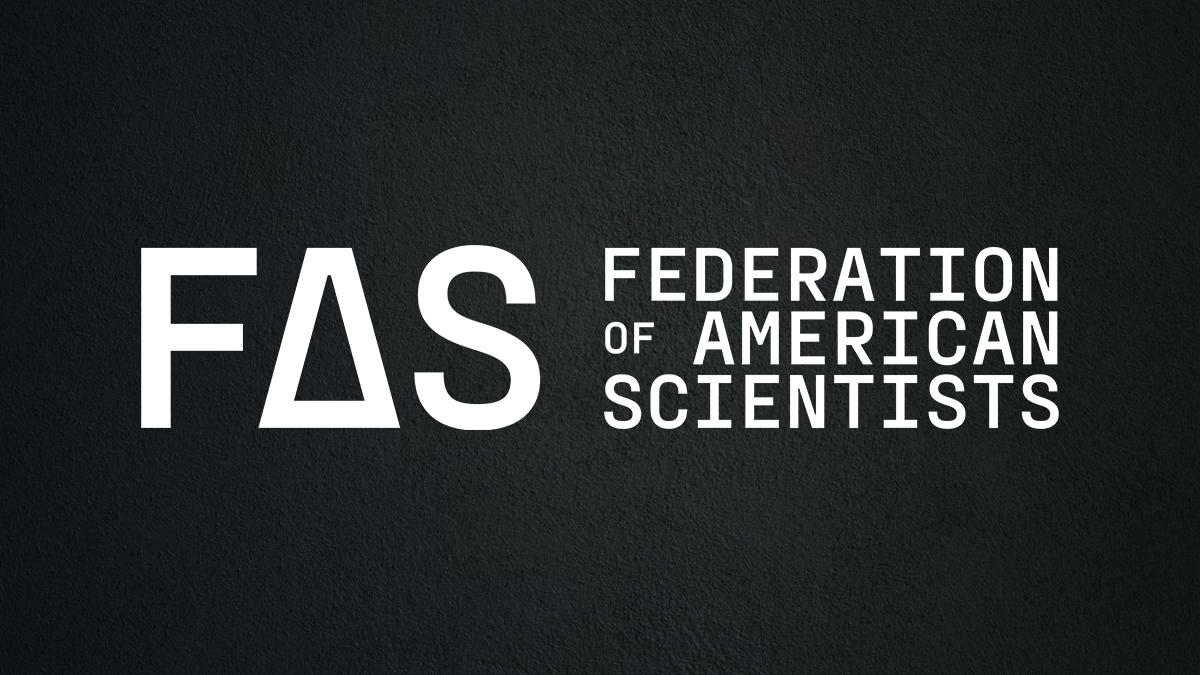
Position on National Security Commission on Emerging Biotechnology Final Report: Charting the Future of Biotechnology
The Federation of American Scientists supports the National Security Commission on Emerging Biotechnology’s Final Report and the Recommendations contained within it.
Charting the Future of Biotechnology delivers 49 recommendations to foster the growth of the biotechnology and biomanufacturing sector within the U.S. bioeconomy. Implementing the recommendations outlined in this report will strengthen the U.S. bioeconomy by establishing a unified national strategy that fosters innovation in biotechnology, ensures our continued global competitiveness, and delivers significant economic and societal benefits to the nation.
FAS is particularly excited by these recommendations:
- 1.1a: Establishment of a National Biotechnology Coordination Office
- 2.2a-d: Economic levers to promote scale-up and innovations coming to market
- 2.4a: Biotechnology infrastructure and data to be classified as “critical infrastructure”
- 3.1a: Department of Defense to consult with stakeholders to define principles for ethical use of biotechnology
- 4.3a-c: Centers for Biotechnology
- 5.1a through 5.3b: Biotechnology workforce for the future
- 6.1a-e: Strengthen global U.S. biotechnology efforts through global policy
These recommendations have the potential to address key challenges within the U.S. bioeconomy, including the lack of a coordinated strategy, commercialization barriers, workforce shortages, and supply chain vulnerabilities.
“FAS applauds the NSCEB’s deep investigation of unlocking U.S.-led biotechnology in the Fourth Industrial Revolution. We look forward to bringing FAS’s unique and effective approach of policy entrepreneurship to realize the promise of these capabilities while reducing the risks of misuse,” said Yong-Bee Lim, Associate Director of Global Risk at the Federation of American Scientists.
“The National Commission on Emerging Biotechnology report developed 50 recommendations to address the major challenges currently facing the U.S. bioeconomy: a lack of strategy and coordination across the federal government, difficulties in scaling biotechnology innovations, and the need for a trained workforce for the future. These recommendations aim to de-risk the biotechnology sector, thereby enabling private sector investment in critical biotechnology and biomanufacturing initiatives. Ultimately, these efforts will foster continued growth, secure the U.S. bioeconomy, and lead to the creation of new jobs and further economic growth.”” said Nazish Jeffery, Bioeconomy Policy Manager at the Federation of American Scientists. “It will be important to continue advocating, refining, and adding additional recommendations in order to realize the full value that this report offers.”
For more information contact Nazish Jeffery, FAS Bioeconomy Policy Manager, njeffery@fas.org.
The Federation of American Scientists supports Congress’ ongoing bipartisan efforts to strengthen U.S. leadership with respect to outer space activities.
By preparing credible, bipartisan options now, before the bill becomes law, we can give the Administration a plan that is ready to implement rather than another study that gathers dust.
Even as companies and countries race to adopt AI, the U.S. lacks the capacity to fully characterize the behavior and risks of AI systems and ensure leadership across the AI stack. This gap has direct consequences for Commerce’s core missions.
As states take up AI regulation, they must prioritize transparency and build technical capacity to ensure effective governance and build public trust.